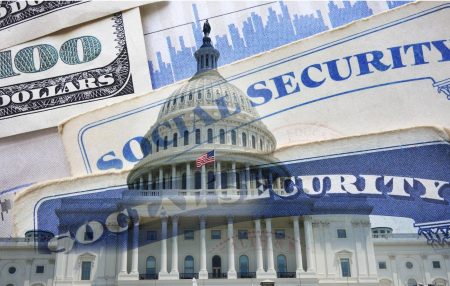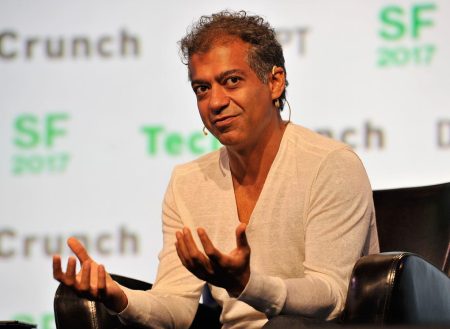Ray Dalio, billionaire founder of Bridgewater Associates, once warned that if America didn’t address its widening wealth gap, the rich might soon face mobs with pitchforks. Dalio stated, “I believe that all good things taken to an extreme can be self-destructive, and that everything must evolve or die. This is true for capitalism.” Bridgewater, the world’s largest hedge fund, manages over $124 billion in assets.
Dalio is power speaking truth to power.
While Dalio may not have used the 19th-Century word pitchforks, which was a referral to rebellion by peasants wielding actual pitchforks, his warning to fellow capitalists was seen as the same kind of warning.
Dalio’s pitchfork metaphor was no exaggeration. Now more than ever we are living in an era defined by a gaping and growing divide between the haves and have-nots. The photo of Elon Musk in a T-shirt standing beside President Trump in the Oval Office is a picture that punctuates the numbers that tell the story of a deep divide between the elite and workers.
Wealth Inequality: The Existential Challenge To Capitalism
1. The Top 10% Own 93% of All Stocks: As of Q3 2023, the top 10% of Americans owned a record 93% of all U.S. stocks. A decade ago, that number was “just” 81%. Meanwhile, the bottom half of American households own less than 1% of stocks and mutual fund shares.
2. The Richest 1% Hold $25 Trillion in Stock Wealth: That top 1% owns more than half the total value of the public equity market—a concentration that would have been unimaginable a generation ago notes Inequalty.org.
3. The Median Retirement Savings for Half of Americans is $0: That’s right. Zero. For the bottom 50% of American families, the median retirement savings is nothing. In contrast, families in the top 10% hold a median of $610,000 explains the Economic Innovation Group (EIG).
4. Pension Wealth Has Grown 720% for the Richest 1%: Between 1989 and 2021, pension entitlements for the top 1% grew by 720%, while the bottom 50% saw just a 470% increase, EIG adds. The richest added $14 trillion to their retirement wealth; the bottom half, only $716 billion.
5. Half of U.S. Workers Lack Retirement Plans: Roughly 50% of U.S. workers don’t have access to an employer-sponsored retirement plan, EIG explains. Workers in the top 25% are more than twice as likely to have access compared to those in the bottom 25%.
6. Elderly Americans Face the Highest Poverty Rate in the G7: According to the OECD, about 23% of Americans aged 66 and older live in relative income poverty—the highest rate in the G7.
7. The Racial Wealth Gap in Retirement is Stark: Median wealth for Black and Hispanic households is $24,000 and $36,000, respectively. For white households? $143,000, notes EIG. These disparities are compounded by lower access to retirement accounts and greater vulnerability to income shocks.
Retirement Wealth Inequality May Produce The Biggest Pitchfork
Retirement security in the United States varies sharply across class, race, and gender, with low-income workers, women, and people of color facing the greatest risks. Yet, despite these disparities, survey after survey confirms that retirement insecurity is a central economic concern for American families across the board.
Because Americans vote, this shared anxiety makes retirement security a top policy issue. Importantly, these concerns have been consistently voiced even before the recent financial shocks. The 2024 Retirement Insecurity report by Greenwald Research found that 79 percent of Americans believe the nation is facing a retirement crisis, a significant increase from 67 percent in 2020. Additional surveys compiled by the Schwartz Center for Economic Policy Analysis shows that between 32% and 71% of Americans express anxiety about their retirement prospects—underscoring the persistent uncertainty many feel about their financial futures.
And these levels of anxiety had been measured before the crash in the stock market in April 2025, which made anxiety even worse.
While the wealthy and economically-secure report less concern, rising wealth inequality—effectively, security inequality—could represent a political vulnerability for the Trump administration as it pursues tax cuts for the rich and deregulation of financial markets.
Solutions To Wealth Inequality
Expand Social Security To Equalize Wealth
But while the crisis is clear, so are the solutions. Expanding Social Security is the most practical, immediate, and popular step we can take.
More than half of older Americans rely on Social Security for the majority of their income. For 25% of seniors, it provides 90% or more, notes the Center on Budget Priorities. Yet the median benefit—around $1,976/month as of January 2025—is not enough to cover basic expenses in most parts of the country, notes the Social Security Administration.
To shore up and expand the program, lawmakers have introduced bold plans. Representative John Larson’s “Social Security 2100 Act” and Senator Bernie Sanders’ “Social Security Expansion Act” both aim to raise revenue by:
– Lifting the cap on taxable earnings (currently $168,600)
– Applying payroll taxes to capital gains and other investment income
– Providing a 2% across-the-board benefit increase
One approach that is gaining traction is the “donut hole” method: income is taxed up to $168,600, then exempted until $400,000, and taxed again above that. This strikes a balance between revenue generation and political feasibility.
According to the Social Security Administration’s Office of the Chief Actuary, Larson’s bill would close nearly 90% of the 75-year funding shortfall.
Expanding Social Security isn’t a fringe idea. I’ve long argued that we could offer a 75% to 80% wage replacement rate for most workers (those earning between $10,000 and $80,000) with modest payroll tax increases shared between employers and employees.
But we can’t stop there. We must address the structural unfairness in how retirement is funded. Today, payroll taxes are levied only on wages. But the wealthy derive most of their income from capital—stocks, dividends, real estate. As long as these income streams go untaxed by Social Security, the system remains regressive. Applying the FICA to investment income would provide significant new revenue, reduce the burden on low- and middle-income earners, restore faith that the system is fair.
The RSAA Can Mitigate Wealth Inequality
And, of course, we must make the tax expenditures for retirement savings more fair and adopt a universal retirement account system for all Americans – the RSAA. The Retirement Savings for Americans Act (RSAA) is a proposal in Congress to make the U.S. retirement system more equitable by establishing a universal retirement account system accessible to all American workers. An American workers who doesn’t have a plan at work would be automatically enrolled and will 3% of their pay into their account. (of course they can adjust the rate or opt out). Low income workers would get a a 5% federal match which helps right wrong of the top heavy current tax expenditures. The RSAA facilitates long-term wealth accumulation and financial security for a broader segment of the population.
So here we are. America’s richest have never been richer. And most Americans are scared stiff they won’t be able to retire. It’s not hard to see why the pitchfork metaphor resonates.
Fixing Social Security won’t solve everything. But it’s a smart and humane first step. A broad expansion of benefits, funded by fairer contributions from those who’ve benefited most, can ease widespread anxiety, restore trust in government, and begin to close the yawning wealth gap before it swallows our democracy whole.
The pitchforks are real. But so are the policy tools to keep them in the barn.
Read the full article here









